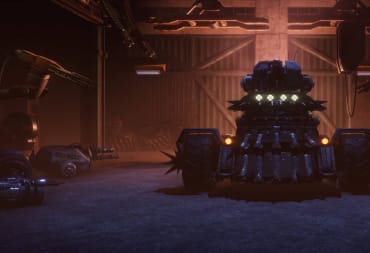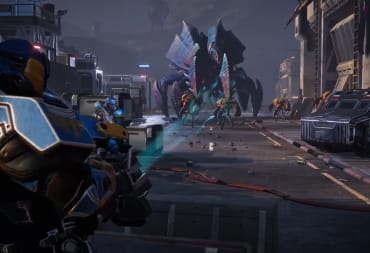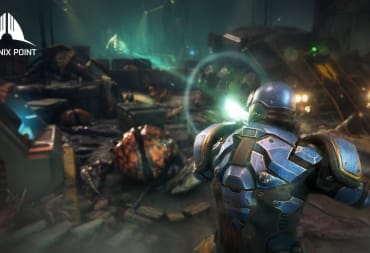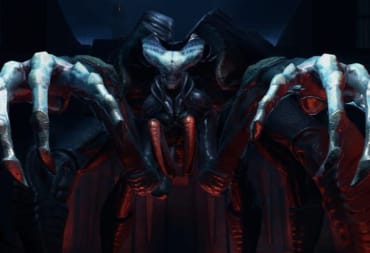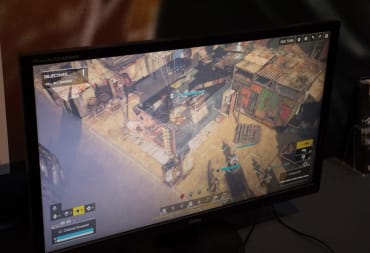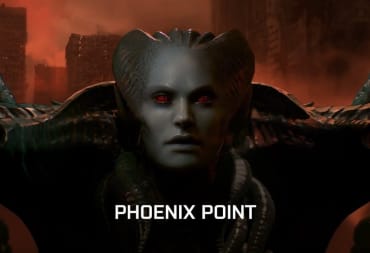In 2012, following eleven years of silence from the XCOM franchise, 2K and Firaxis Games released XCOM: Enemy Unknown. Created without the involvement of original series mastermind Julian Gollop, Enemy Unknown streamlined the often obtuse and difficult gameplay of the 1993 original. What emerged was something easier to understand for modern audiences, a compromise that many found agreeable. Gollop was a different story. Though he enjoyed Enemy Unknown, it wasn't quite what he would have chosen to do with the XCOM franchise had he been given the reins. Gollop instead got to work on his own vision, one he called Phoenix Point.
It's tempting to look at Phoenix Point as simply "new XCOM but harder", but that would be wide of the mark. Phoenix Point is the natural continuation of XCOM: Apocalypse, the last major XCOM game Gollop worked on. It's strategically deep and complex, placing emphasis on warring factions and a much greater focus on the Geoscape. Phoenix Point inspires feelings of frustration and triumph in equal measure. It's a little rough and ready, lacking the polish of its higher-budget sibling. If you're willing to stick with it through a very hands-off introduction and an overwhelming user interface, it can be immensely rewarding.
Phoenix Point | Earth's Mightiest Zeroes

The story of Phoenix Point is bleak and evocative. When a virus discovered in permafrost turns humans and animals alike into horrifying mutations that quickly overrun the Earth. You are a member of the Phoenix Project, an organization dedicated to assisting humanity during times of crisis. It's your job to launch expeditions from the titular Phoenix Point - the only Phoenix Project base left on Earth - and discover what happened to the rest of the organization. At this point, you're not fighting an invasion. Instead, you're trying to pick up the tattered remains of what happened after an invasion effortlessly destroyed civilization.
Some pockets remain, and that's where the human factions come in. The Disciples of Anu worship the mist that came with the virus. New Jericho is a military faction that wants to overwhelm the virus and its mutations with sheer firepower. Synedrion is trying to construct something resembling human society from the remains of the previous one. These three factions are naturally in constant conflict, so as well as being an alien hunter, you must mediate between them. They have varied and complex demands which tie into the gameplay and the overall narrative in pleasing ways I won't spoil.
Phoenix Point suffers when it tries to stretch itself too thin. Since it's got both an alien virus and a set of human organizations to consider, sometimes the narrative can feel torn. Is it interested in developing the aliens' story or in showing you political infighting? A greater focus on one or the other of its elements might have benefited Phoenix Point and streamlined its story a bit. What is here is a perfectly fine story that diverts and evolves in fun ways. Still, it can sometimes feel like one side is taking a break to allow the other some breathing room.
Phoenix Point | Devil's Gambit

Gameplay in Phoenix Point consists of two halves: the Geoscape and combat. On the Geoscape, you'll explore your surroundings, talk to other factions, and research new technologies. Think of it as XCOM meets Civilization. Once you've discovered faction bases, you can watch them send drones out to explore. Phoenix Point will notify you when the factions have researched new technology, when they're having spats with other factions, and when bases are under attack. Helping them will raise your standing with that faction while likely lowering your favor with the rival group.
In practice, this means you'll be a caretaker in Phoenix Point. You don't just have your own bases to look after. There's a web of complex faction politics to navigate that can have a serious effect on how your game goes. If you manage to meet factions and befriend them early on, you could gain access to crucial early game advantages. The random layout of the Geoscape is usually quite good at allocating a decent amount of space to faction bases. Phoenix Point really wants you to meet these people, talk to them, and understand their plight.
Unfortunately, thanks to some slightly less-than-stellar characterization, Phoenix Point's factions rarely feel like more than a gameplay mechanic. Characters within factions get their message across fine, but the dialogue can sometimes feel stunted and clunky. Phoenix Point suffers from feeling too much like a game at times and not enough like a real end-of-the-world event. Despite its grim apocalyptic setting, characters speak with a breezy lack of urgency that rejects basic human instinct. It makes the world feel a little plastic, as though nothing happening within it is real.
Luckily, the Geoscape itself is more enjoyable. You've got quite a few resources to worry about in Phoenix Point. You'll need to feed your staff, pay for equipment, and keep multiple bases running. This leads to a hands-on style of play that never lets you rest. Trying to juggle exploring, taking on story missions, and making sure you've dotted your I's and crossed your t's is a constant challenge. There's no shame in letting your first few playthroughs fail so you can get a grip on Geoscape mechanics. Phoenix Point is not a game for the unprepared.
Phoenix Point | Killing The Alien

The other half of Phoenix Point's gameplay is its turn-based combat. Here, things get a little more exciting. XCOM: Enemy Unknown is a very clear influence. The perspective, visual style, and general feel are all strongly reminiscent of Firaxis' 2012 take on Gollop's franchise. There are several key differences, of course, but if you're an XCOM veteran it won't take you long to feel at home in Phoenix Point. Cover mechanics, classes, and even some enemy types carry over pretty wholesale from Enemy Unknown. There are also new mechanics like vehicles - which are crucial, especially in the early game - and an increased emphasis on exploiting cover.
Some of the ways in which Phoenix Point carves out its own identity leave it lacking. Your chance to hit an enemy shows up as a weird set of white lines on their HP bar. A flat percentage would have done and would be a much better way to communicate that information. There's also a lack of info in general on the HUD. If you're new to Phoenix Point, it won't immediately be clear what your characters' classes are or how that matters. Once you get used to the visual style, things become a little clearer, but that early lack of clarity is crucial for communicating new concepts. As with the Geoscape, you will likely fail more than once before you get to grips with Phoenix Point's combat interface.
Once you do, the combat plenty of hidden depth. Environments are destructible, meaning you can flush enemies out of cover. This means even if your shot misses, it's unlikely to be completely useless. Balance is good - enemies rarely feel unfair, but often feel like they need clever tactics and teamwork to overcome. Sadly, Phoenix Point's combat is let down by less-than-stellar enemy design. There's nothing here as terrifying as Enemy Unknown's Thin Men, for example, or as blood-curdling as its Chryssalids. Instead, the alien Pandoran enemies are simply indistinct humanoid blobs, while the humans are...well...humans.
That feeds into one of Phoenix Point's most interesting mechanics, however. The Pandorans evolve as you play, adapting to the tactics you use. If you routinely exploit weaknesses, they'll develop new ways to defend themselves. In theory, this means no two playthroughs will feel the same. In practice, however, the actual shape and physiognomy of the Pandorans have to remain at least somewhat consistent for the narrative to work. It's a pleasant diversion, but it won't be the reason you come back for repeat playthroughs.
Phoenix Point | Depth Perception

In general, Phoenix Point strikes a balance between the approachability of new XCOM games and the raw strategy of Gollop's earliest efforts. It doesn't have the nightmarish, unnecessary depth of something like XCOM: UFO Defense, which hasn't aged massively well into an age of accessibility. On the other hand, it's not as willing to hold your leash as Firaxis' take is. You need to think about almost every mechanic and can't leave anything to fate. If you overlook something, it could be the end not just for your soldiers, but for your entire playthrough.
Having said earlier that XCOM veterans will be familiar with Phoenix Point, that experience could actually harm you more than helping you. Even something as basic as recruiting extra soldiers is hidden behind a research project (which you'll want to complete as early as possible). Gollop has streamlined his early XCOM formula, but this is a much deeper, much more difficult game than you might be expecting. You'll have to use every single advantage available to you in combat if you're going to succeed, and the same goes for the Geoscape.
It might be better to approach Phoenix Point as a roguelike than as a straightforward strategy experience. Use your early runs to fail, feel your way through the mechanics, and learn about the way it all works. With that in mind, I would absolutely not recommend Phoenix Point to anyone who doesn't want to put too much time into a strategy game. This is an experience that demands you learn all its ins and outs, that doesn't waste time on what it sees as frivolous elements. Soldier customization is almost non-existent. Phoenix Point doesn't want your emergent gameplay, it wants your undivided dedication and attention.
Phoenix Point | Final Thoughts

It's hard to say whether you'll be disappointed if you go into Phoenix Point expecting more XCOM. On the one hand, the Geoscape, general structure, and combat outline do feel very similar. On the other, this is undeniably a different beast in many important ways. It almost feels like Gollop designed Phoenix Point to trip up XCOM vets at some points. That's not necessarily a bad thing. Phoenix Point might lack polish, and it doesn't feel anywhere near as pleasantly streamlined as its big brother, but it's a worthwhile strategy experience with tons of depth and an enjoyable if uneven difficulty curve.
TechRaptor reviewed Phoenix Point on PC via Epic Games Store with a code provided by the publisher.
Review Summary
Pros
- Exciting Emergent Strategy
- Deep, Rewarding Geoscape
- Addictive Combat
- Great Atmosphere
Cons
- Rough Visuals
- Depth Feels Intimidating
- Boring Enemy Design
- Occasionally Weak Writing
Have a tip, or want to point out something we missed? Leave a Comment or e-mail us at tips@techraptor.net








